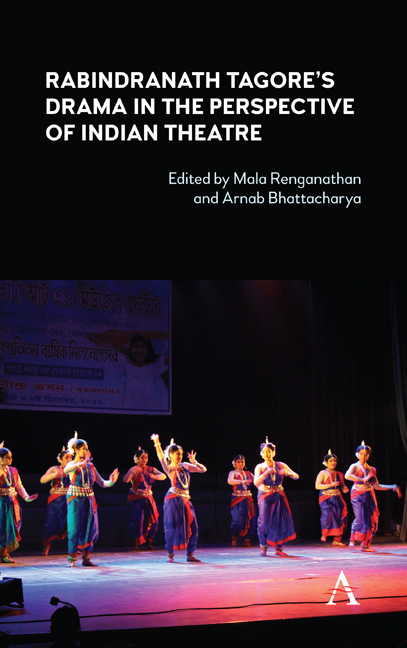Chapter 10 - Visarjan as Performance: A Road towards Ritual Healing
Published online by Cambridge University Press: 20 January 2022
Summary
Why should we be spared? Life itself would spring from the shedding of our blood.
– Camara LayeRabindranath Tagore's Visarjan (1890) revolves around themes of religious devotion, and also its opposite of how religious orthodoxy and fanaticism consume human lives. A readaptation of his own novel named Rajarshi (1886), this play has enormous contemporary significance at a time when religious orthodoxy is firming its grip on Indian society. Contemporary India is marked with the fight between the orthodoxy and the progressive voices in society. Even the state, which is considered as a modern institution, is either being encroached upon or being made helpless by the orthodox interpretations. There are several examples of the growing clout of religious fanaticism in society, be it the murder of rationalists for their views, killing of people over their food habits, dishonour killings, communal polarization and the like. For an author, speaking of the pressing social problems needs enormous courage. But if a drama written in the last quarter of the nineteenth century still resonates with the social realities of society, it marks both foresightedness of Tagore and the failure of the society to progressively transform itself.
Visarjan deals with the King of Tripura Govinda banning animal sacrifice in temples which causes an orthodox, cunning priest called Raghupati to protest. Tagore's modernism intertwined with cultural universalism gets its finest expression in Visarjan which adds to the play's contemporary relevance. The incidents unravel in a temple where all the characters, from the righteous148 King Govinda to the beggar girl Aparna, gather to discuss a sacrifice and its ramifications on human lives. The sacrifice of animals before the idol of Kali, the goddess of power, constitutes the main premise of the play.
It is not surprising that Tagore dedicated Visarjan to ‘those heroes who bravely stood for peace when human sacrifice was claimed for the goddess of war’. The significance of Visarjan lies in the conflict within Jaising's soul vacillating between the demands of religion and the claims of humanity. The binary between the role of the King and the Brahmin priest Raghupati offers another thematic dimension in the play.
- Type
- Chapter
- Information
- Rabindranath Tagore's Drama in the Perspective of Indian Theatre , pp. 147 - 156Publisher: Anthem PressPrint publication year: 2020



